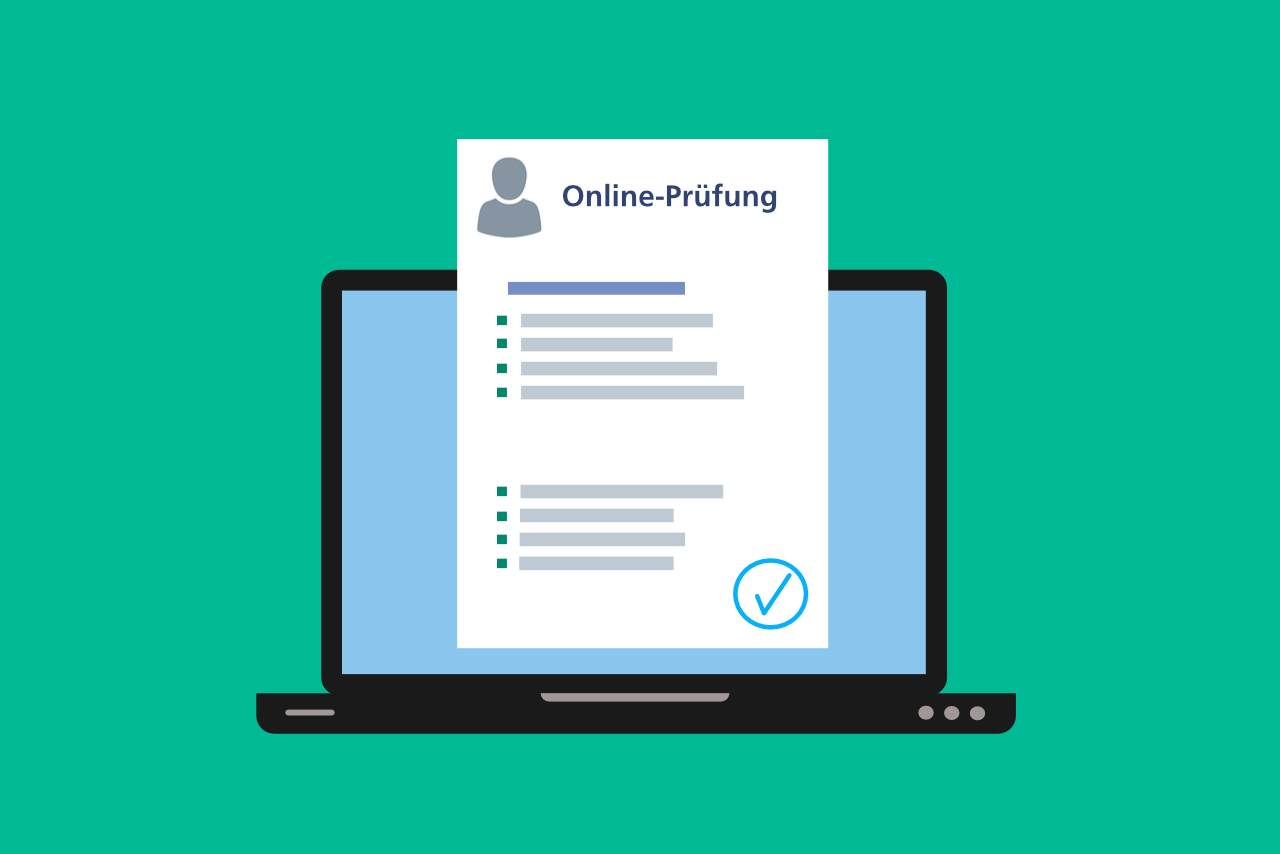
(2022 - 2023)
|
The aim of the strategy fund project on online examinations at KIT is to develop a concept for an integrated process for conducting online examinations. The project builds on the "PePP" project by subjecting the technical innovations implemented there to a practical test. An integrated overall process that is secure in terms of examination and data protection law serves as the basis for a sustainable examination infrastructure for online examinations at KIT.
|
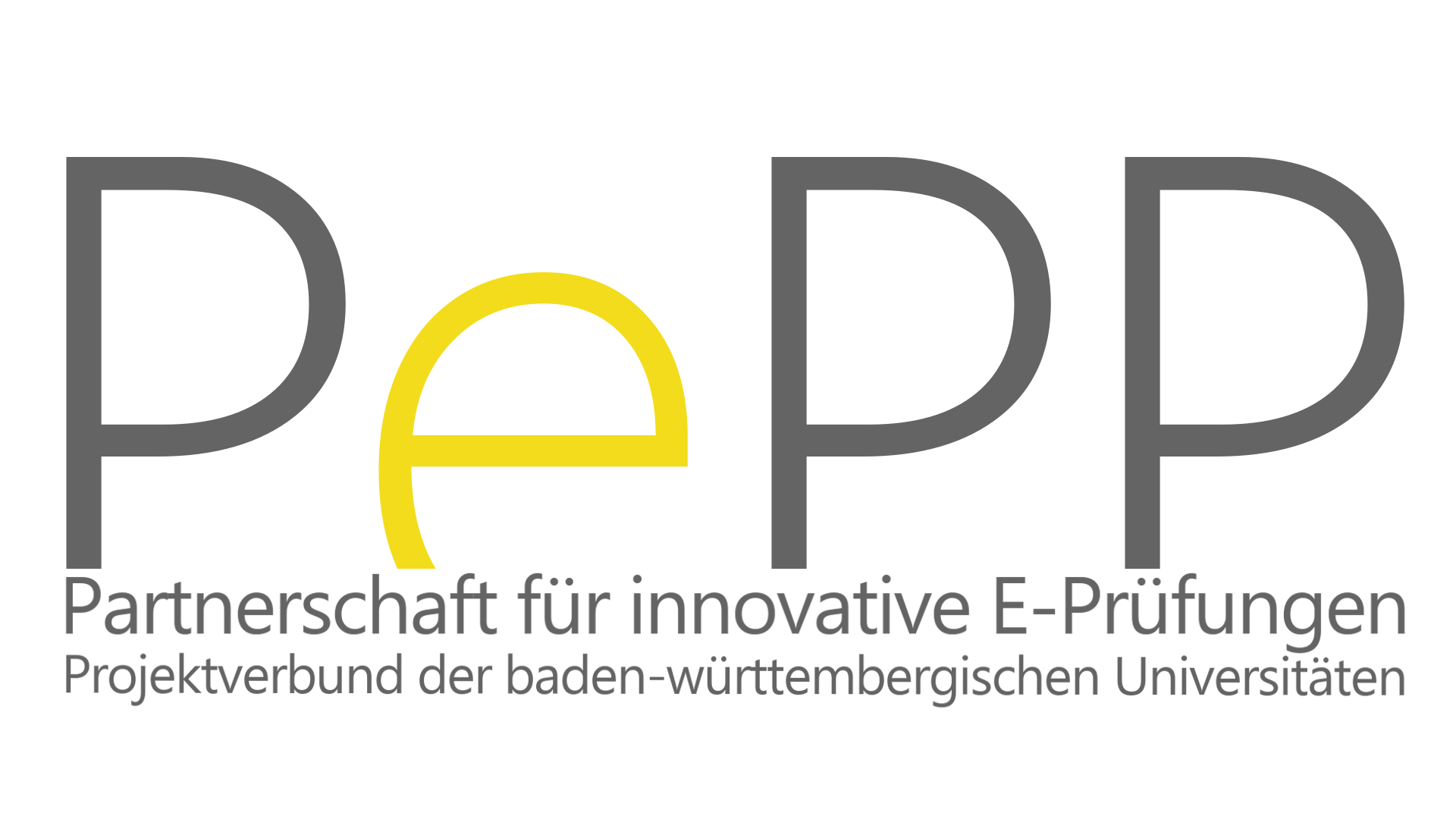
(2021 - 2024)
|
With PePP (Partnership for Innovative E-Examinations - Project Network of Baden-Württemberg Universities), there have been many modernizations in the field of digital examination formats in recent semesters. New technical developments were tested and evaluated during the funding within the "University Teaching through Digitalization" programme of the Foundation for Innovation in University Teaching. The focus was particularly on the expansion of online examinations such as open book upload examinations or online examinations with video supervision.
|

(2021 - 2024)
|
The aim of DORA4KIT was to sensitize KIT students to the topic of research data management and to impart specialist skills in this area. As a project partner, the ZML designed and produced tailor-made digital learning opportunities for use in the early stages of scientific training. They can be used both integratively and additively in teaching. At the same time, an associated learning platform was set up on ILIAS, which will be successively filled with the educational offers from 2022 and will be available centrally at KIT.
|
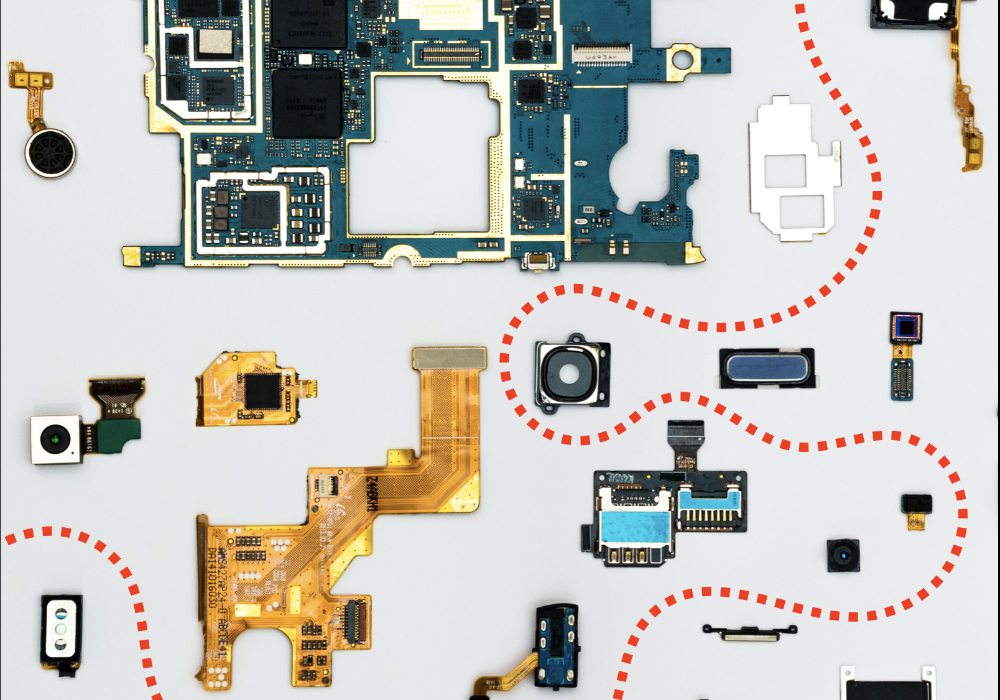
(2021 - 2022)
|
In the "BLEND & ORIENT" project, the ZML and the Institute for Information Processing Technology (ITIV) developed a blended learning concept for the bachelor's course in digital technology. The aim was to enrich the face-to-face courses with digital elements and to interlink all elements effectively. The resulting learning offer is intended to make it easier for first-year students to find their way around the subject on the one hand and to promote motivation and continuous learning over the course of the semester on the other. A digital learning map, cross-course challenges and supporting learning videos are used for this purpose.
|
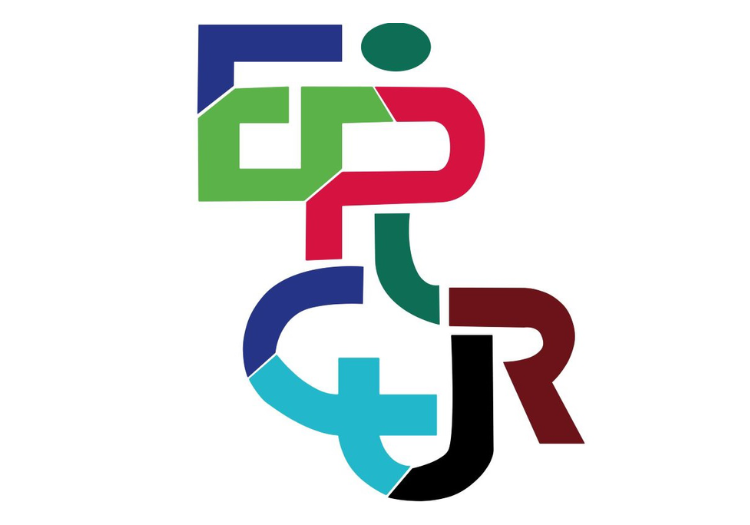
(2019 - 2022)
|
The ZML was involved in the international project of the European university network EPICUR (European Partnership for Innovative Campus Unifying Regions). EPICUR is creating an attractive, innovative European university for a new generation - a generation that will face up to the major social challenges of the future Europe.
The European Commission has funded the European university consortium EPICUR with five million euros over the last three years. The members of this consortium were the four EUCOR partners in Freiburg, Karlsruhe, Strasbourg and Mulhouse, as well as the universities of Amsterdam, Thessaloniki, Poznań and Vienna (BOKU). The network was initiated by the EUCOR universities.
|
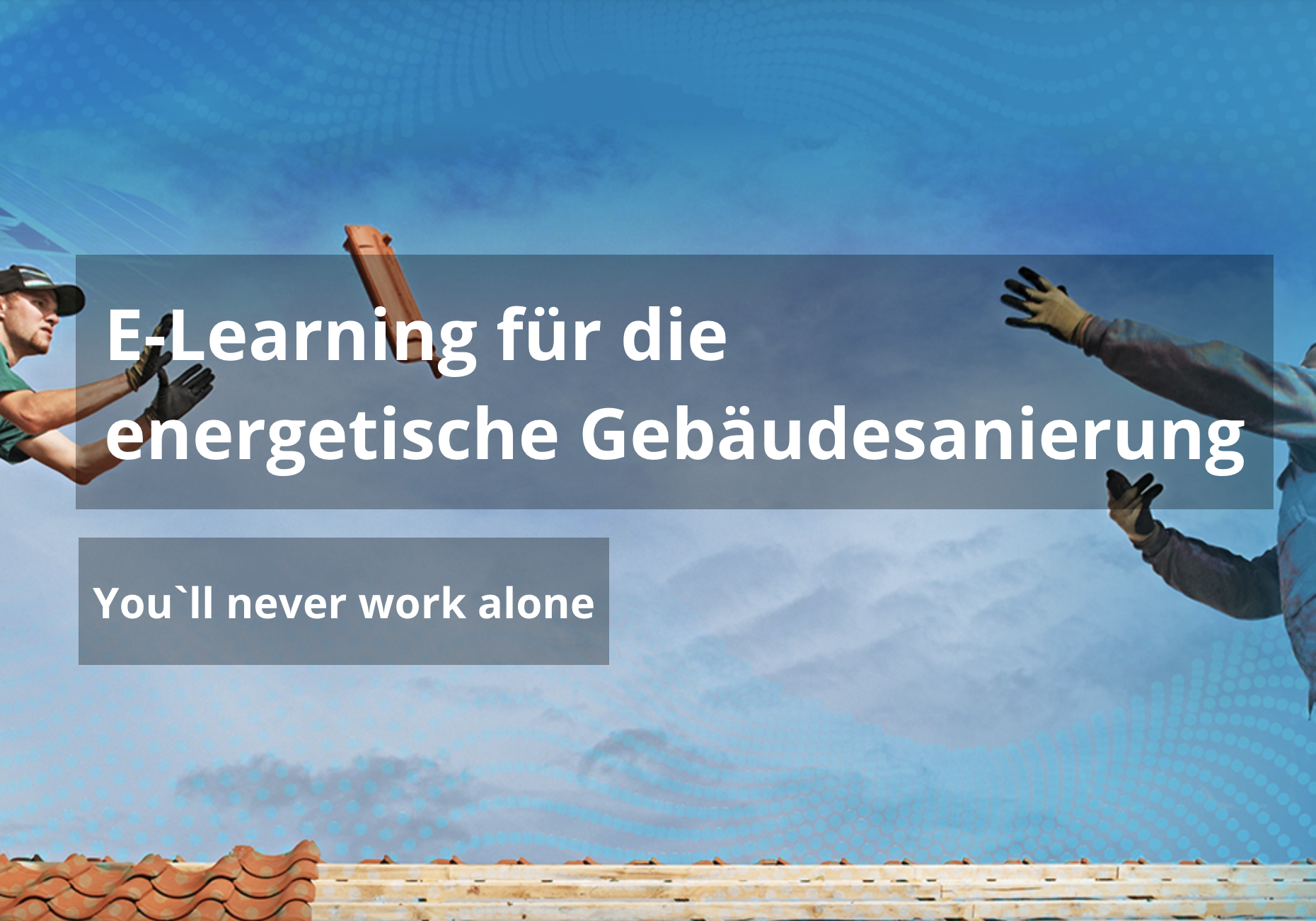
(2018 - 2022)
|
The DiKraft project - a cross-industry digital service and training network for the skilled workers of tomorrow - was aimed at skilled workers and trainees from the skilled trades. Compact learning modules, known as learning nuggets, were created for them, which can be accessed flexibly using mobile devices. Intuitive access is intended to make it easier for skilled workers and trainees to strengthen their skills in cross-sector processes. The ZML was involved in the design and development of these tools. The focus was on the overall media didactic concept and the production of the learning nuggets.
The project started in April 2018 and was funded by the BMBF to the tune of over one million euros over four years. fokus.energie was responsible for coordinating the project to set up a transfer point for all trades relating to energy-efficient construction and energy-efficient building renovation as a platform for digital training.
|
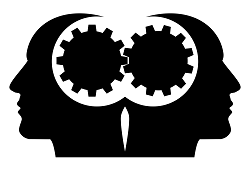
(2018 - 2021)
|
After almost three years, the BePerfekt project has been successfully completed. The overarching aim of the project, which was funded by the Federal Ministry of Education and Research (BMBF), was to harness the innovation potential of the German science and research landscape in an even more targeted manner for stakeholders from society, culture, politics and business. To this end, a service was developed to support the training and further education of effective transfer managers. Once the project has been completed, the training modules and qualification opportunities it contains will be offered on the new KTT community portal "Fokus-Transfer". This means that the courses will continue to be freely accessible to KTT managers in non-university research institutions, universities and research-related transfer companies.
|

(2016 - 2018)
|
In the CLICS - Continuous Learning in International Collaborative project, international education and training courses were developed that would be accessible to a large number of participants and make a contribution to lifelong learning. The ZML was mainly involved in the production of three international MOOCs on the topics of "Automated Speech Recognition", "Machine Translation" and "Robotics".
|
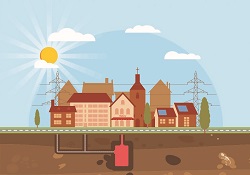
(2017 - 2019)
|
In the SmILES project, electrical and thermal energy grids are simulated in order to optimize the intelligent integration of energy storage systems into local multi-energy systems. The aim is to contribute to a higher proportion of renewable energies in the European energy mix in the long term. The ZML was involved in the SmILES project, particularly in the areas of communication and publications. Among other things, two webinars were developed and implemented as target group-oriented communication measures.
|

(2016)
|
Das DAAD-Programm Leadership for Syria (LfS
|
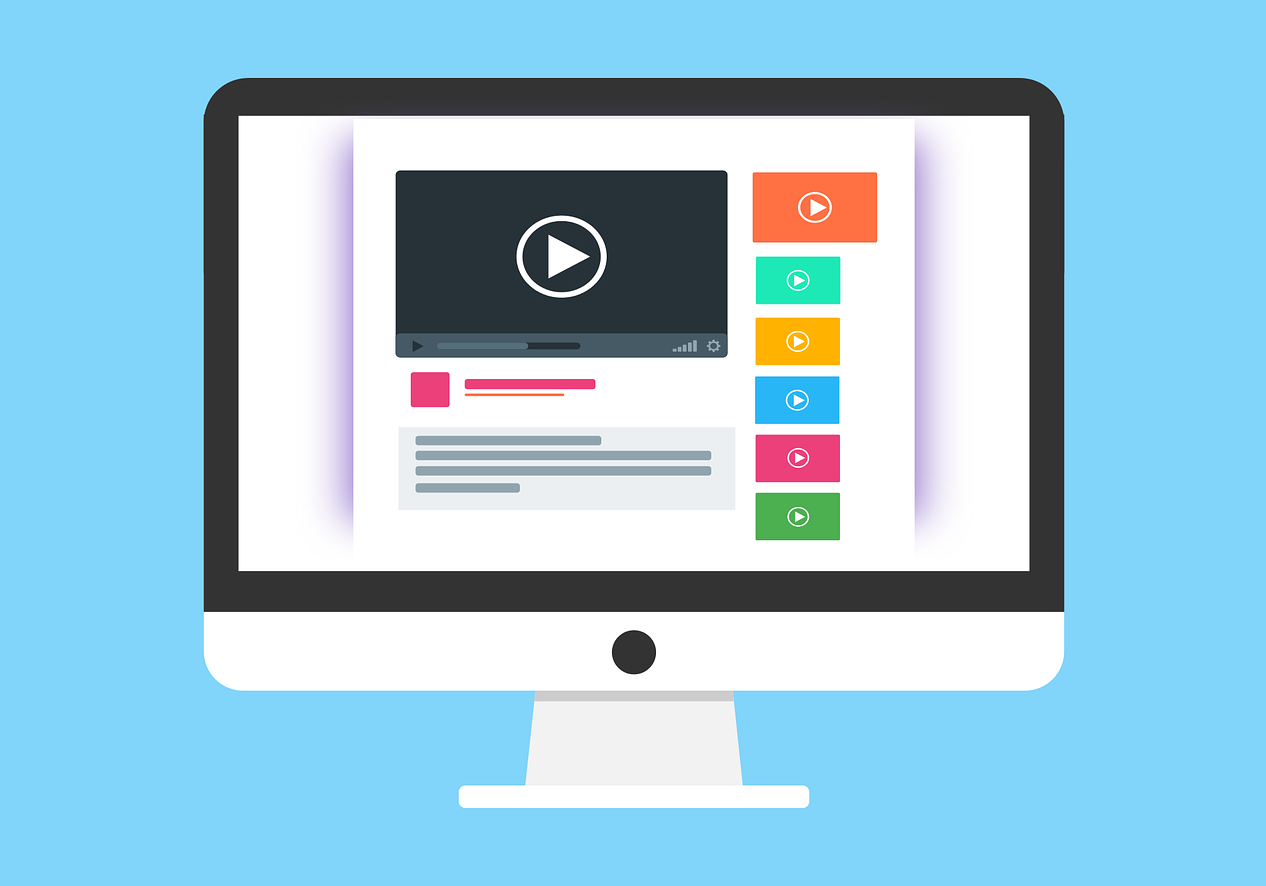
|
On behalf of the Faculty of Mechanical Engineering, the Center for Media Learning converted the lecture "Working Techniques in Mechanical Engineering" into a video-based online format. The concept, based on 38 short video tutorials, covered topics such as literature research, scientific writing, scientific presentations, time and self-management and working in a team. The ZML supplemented the learning units with additional in-depth materials and control questions to check your own learning progress. The online modules each concluded with an online test, which was a prerequisite for participation in the workshop dates associated with the event. |
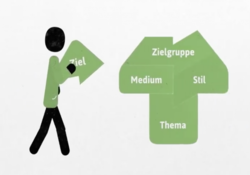
(10/2015 - 10/2016)
|
Together with the National Institute for Science Communication (NaWik), the ZML developed the e-learning course "Wissenschaft. Understandable. Writing" for students in the advanced Bachelor's or Master's phase at the Karlsruhe Institute of Technology (KIT). The young scientists learn how to communicate their research in an exciting, concise, yet factually correct and at the same time understandable way for non-experts from the general public. The semester-accompanying course has been a fixed and popular, successful part of the HoC course offering since 2016. It boasts a sophisticated didactic concept, shaped by both institutions, with a user-friendly design, focusing animations, informative instructional videos and a wide variety of exercises. |
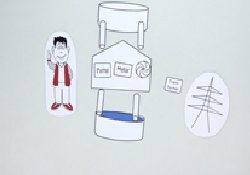
(10/2012 - 12/2015)
|
Discover, discuss and exchange ideas on the topic of energy on a European scale - these were the opportunities offered by the Explore House online magazine. Current articles, interviews and podcasts formed an interface to the KIC InnoEnergy and conveyed interesting facts about education, innovation and science. This knowledge and communication portal specifically addressed pupils, teachers, start-ups, scientists and the interested public in general and connected these players with each other. In this way, Explore House facilitated a diverse dialog between experts and laypeople.
To the follow-up report |
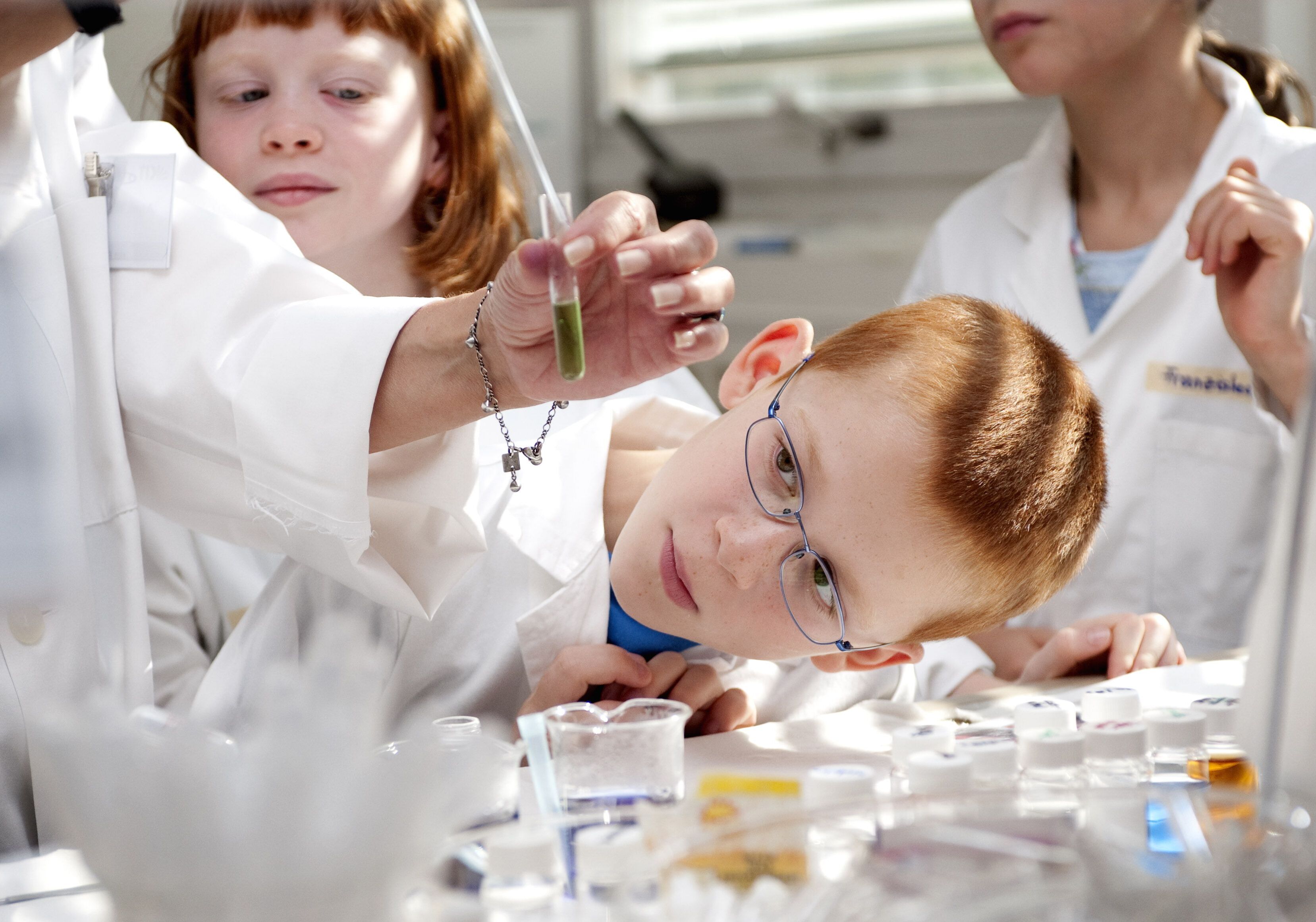
(2011 - 2015)
|
In cooperation with the state seminars for didactics and teacher training (secondary schools), the ZML carried out further training on the topic of "Scientific Work" on behalf of the Baden-Württemberg Ministry of Culture, Youth and Sport. The offer in the form of an internet-based contact study was aimed at teachers at secondary level I and dealt with the topics "Spaceship Earth", "Materials", "Information" and "Energy". One of the reasons for this was the merger of the subjects of biology, physics and chemistry to form the "Natural Science Work (NWA)" subject group. The participants in the training course expanded their scientific background and developed corresponding teaching concepts. In addition, the training offered the participants the opportunity to establish networks across all school types in order to exchange teaching experiences and materials.
To the detailed follow-up report on the NWA teacher training course |
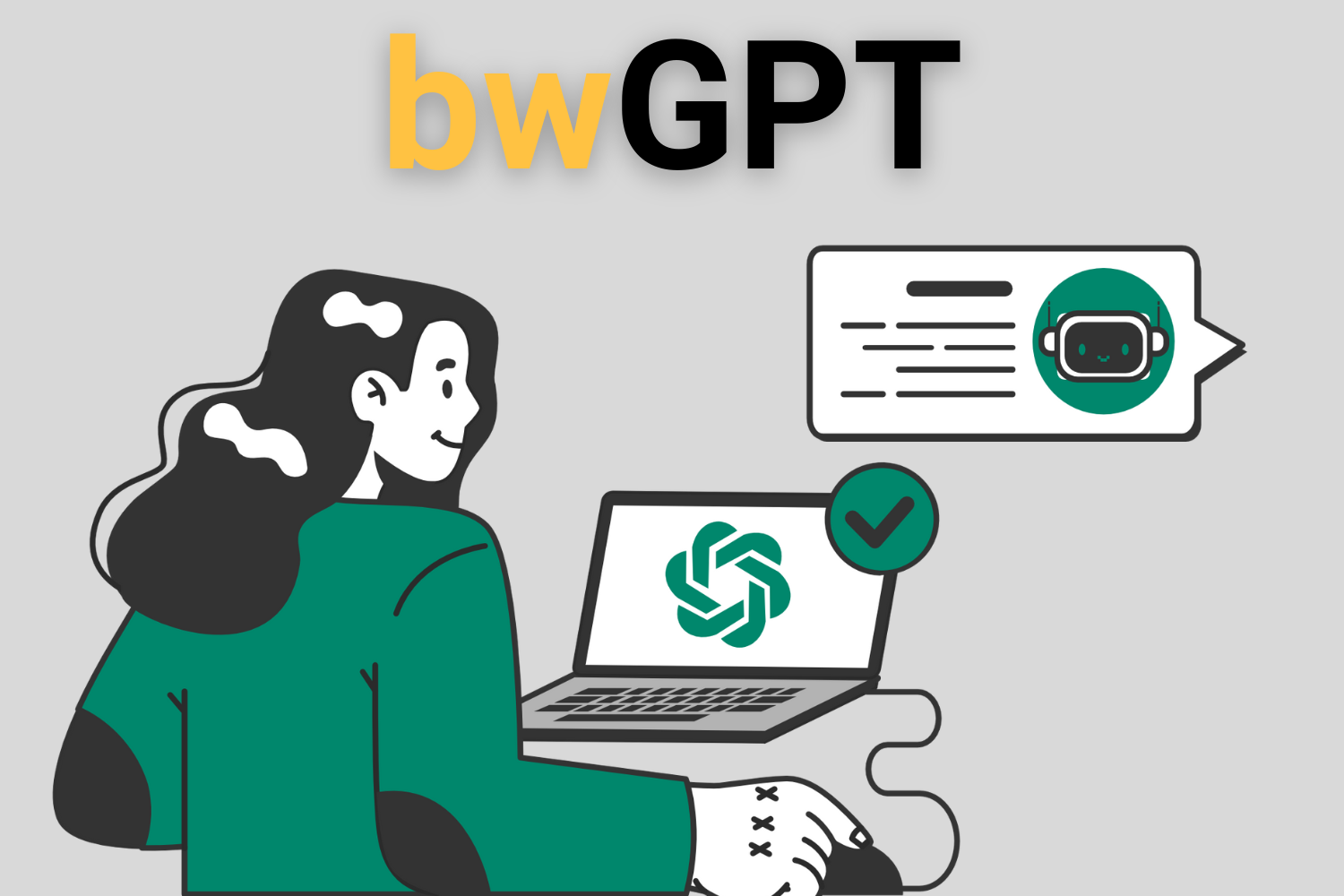
(2024 - 2025)
|
The AI bwGPT has been available at 15 state universities, including KIT, since May 2024. The aim is to digitally design courses at universities in Baden-Württemberg and prepare students for the professional world shaped by artificial intelligence. bwGPT has been integrated into learning platforms such as ILIAS, Moodle, Canvas and Open Olat. The experience gained from the pilot phase forms the basis for the future use of AI technologies in academic teaching.
|
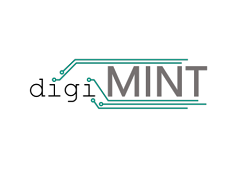
(2020 - 2023)
|
In the "digiMint" project, Media Competence in the Teaching Profession, student teachers are given the opportunity to gain learning experience in various learning settings to expand their media and media pedagogical skills. The so-called "Digital Learning Labs" are available for this purpose, in which they design real or virtual teaching and learning spaces. Students can apply their specialist knowledge of STEM subjects in a digital context and help shape the future of digital-based school teaching.
|
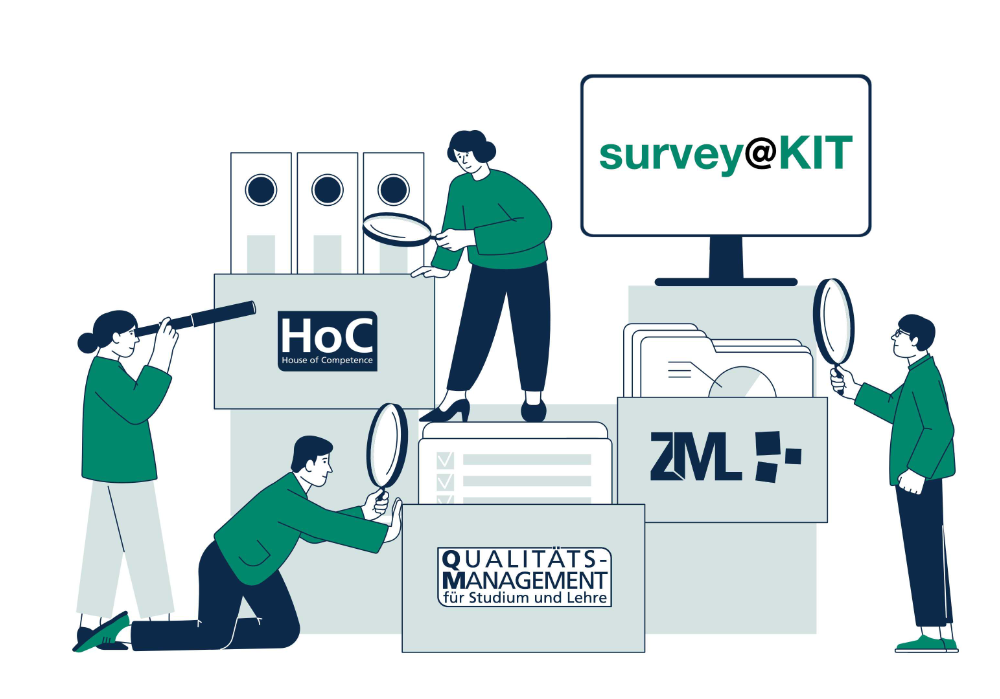
(2023 - 2024)
|
The project "survey@KIT" strives to strengthen the data literacy of students by not only teaching them theoretical basics, but also providing them with practical tools and resources. Through the cooperation of various departments at KIT, comprehensive and sustainable support for students in the development, implementation and evaluation of online surveys has been created.
|
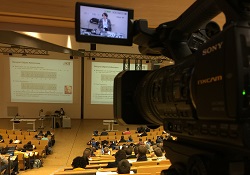
(2021 - 2023)
|
Lecture recordings have not only been available at KIT since the coronavirus pandemic. The automation of recordings has been driven forward since 2018 and lecture halls have been technically equipped for this purpose. In the past two years, the demand for lecture recordings has increased many times over and required rapid expansion and the widest possible availability. It can also be assumed that lecture recordings will play a much greater role in the post-pandemic period than before. It is therefore important to further develop and consolidate the existing processes. This has been done in the "Lecture Recording" project.
|
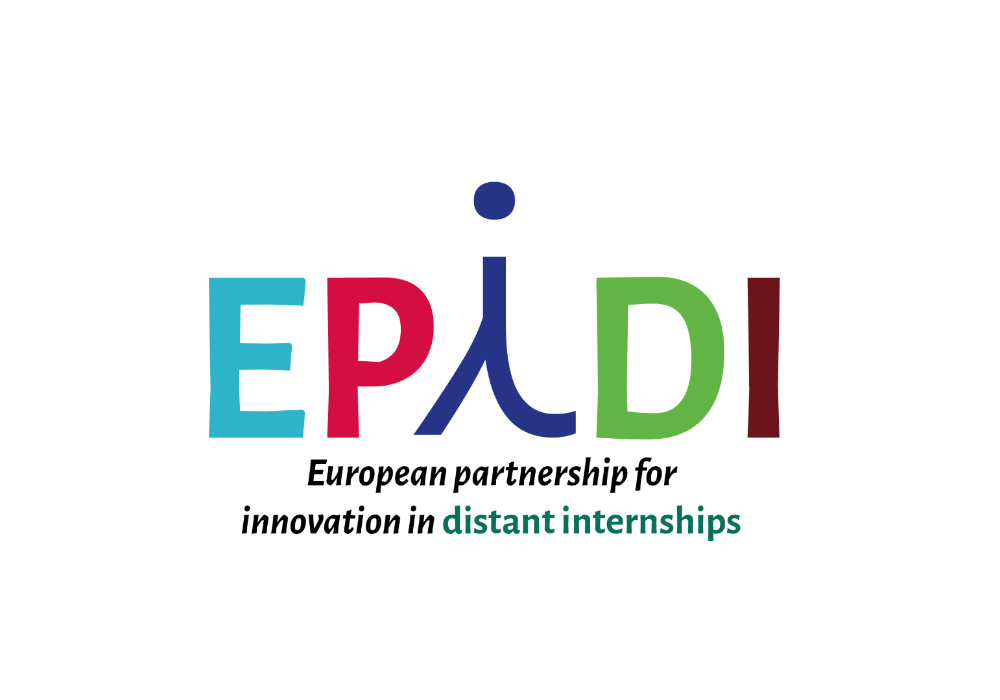
(2021 - 2022)
|
The coronavirus pandemic has meant that many students have had to complete their internships remotely. The remote internship format is new in many places and brings with it many challenges that need to be overcome by the target groups involved. The EPIDI ("European Partnership for Innovation in Distant Internships") project focused on the necessary framework conditions and skills. The project aimed to develop best practice recommendations and e-learning modules for remote internships at universities in order to successfully deal with the changes in working methods and in the workplace.
|
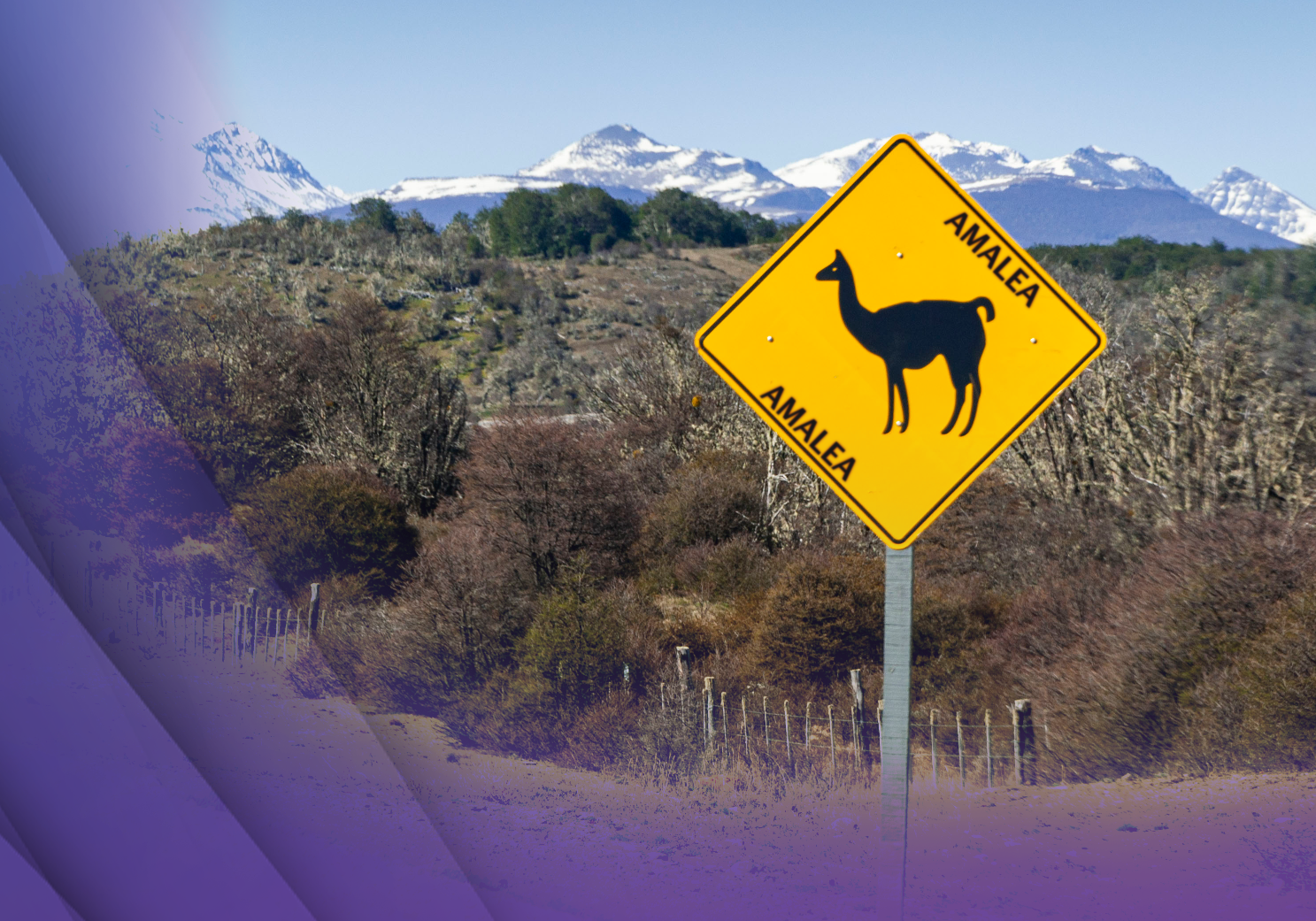
(2020 - 2021)
|
In the AMALEA project, a German-language Massive Open Online Course (MOOC) on the topic of applied machine learning algorithms was developed in a joint project group of the ZML and the Institute for Information Processing Technology (ITIV). The MOOC provides both a basic understanding of machine learning and practical skills in dealing with algorithms. Developed in close cooperation with the KI Campus, AMALEA has been available to all interested parties without restrictions on the KI Campus platform since September 2021: https: //ki-campus.org/amalea.
|
(2011 - 2020)
|
The "KIT - TeachingResearch" project pursued the goal of comprehensive and strategically implemented research-oriented teaching. On the one hand, the focus was on involving all students in research projects at an early stage, while on the other hand, the quality of teaching was to be sustainably increased, taking into account the principle of "teaching follows research". The project was integrated into the "Quality Pact for Teaching" (duration 2011-2020), a federal and state program for better study conditions and more quality in teaching, which aims to improve student support and the quality of teaching at universities.
|
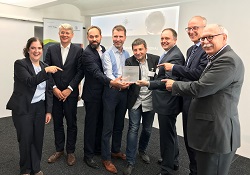
(2014 - 2019)
|
The Stifterverband für die Deutsche Wissenschaft (Donors' Association for the Promotion of Sciences and Humanities in Germany) has recognized the innovative potential of the Lecture Translator and its excellent ability to provide technical simultaneous translation of German-language lectures into other languages. The award is associated with funding to better develop its use for the German university landscape based on its successful use at KIT.
|
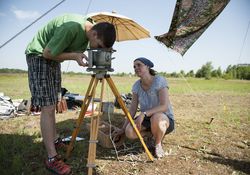
(2016 - 2018)
|
The ZML was involved in the "iBRIDGE" project, which aimed to make it easier for prospective geophysicists to start their Master's degree: In the online-based bridging course developed, students can individually compile learning modules, which include videos and online exercises. In addition, a digital pool of teaching materials for geophysics courses in Germany has been set up.
|
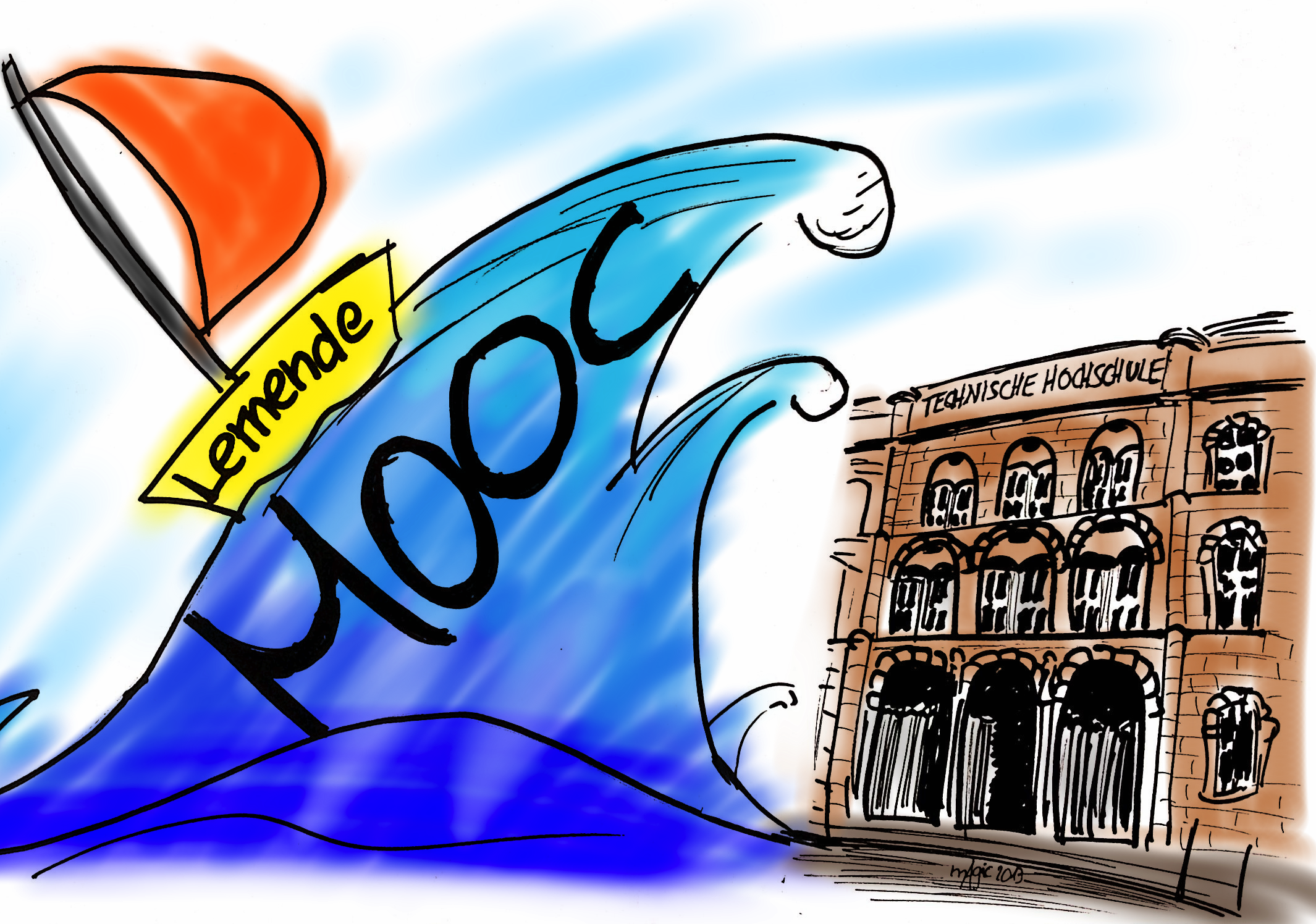
(2015 - 2018)
|
MOOCs combine parts of knowledge transfer and interactive elements to promote skills. They include video units and quizzes/tasks, for example, as well as forums for discussion and mutual exchange. Depending on the platform, further targeted input can be integrated, for example through live chats or video conferences with experts. |
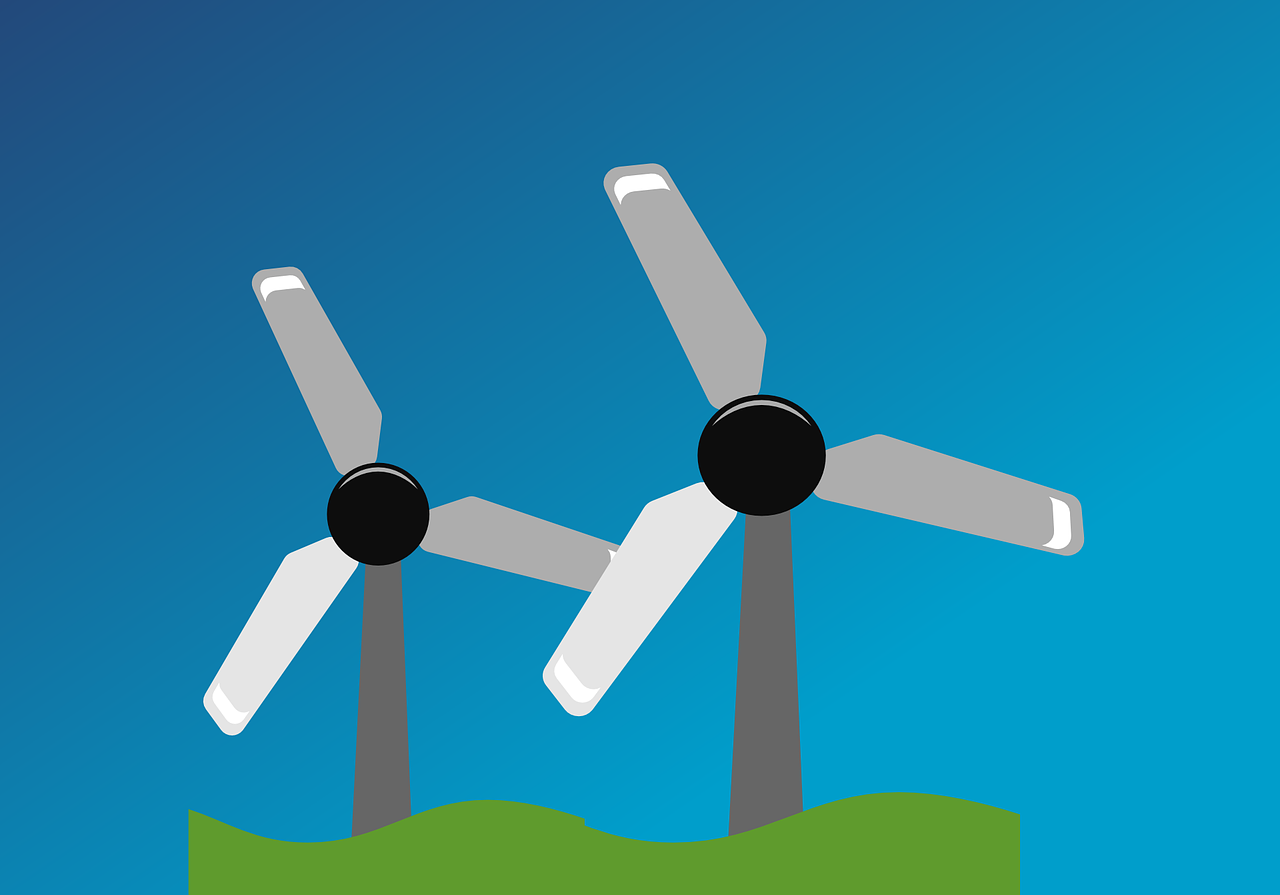
(01/2011 - 11/2016)
|
Starting in 2011, the Center for Media Learning at KIT developed online-based and in-service scientific training courses on energy topics for specialists and managers. The flexible contact studies were offered in both German and English on the following topics: Renewable Energies, Energy English, Electrical Energy Transmission, Technology Assessment and Energy Transition, Energy Economics, Renewable Energies and Energy Economics. The courses were based on a blended learning concept that combined the advantages of online learning with two to three-day attendance phases in Karlsruhe and always made it possible to incorporate up-to-date content with a high degree of practical relevance into the contact studies. Participants learned about the latest scientific findings for professional practice and were also able to establish contacts within European-wide networks during the course. After successfully completing the six-month courses, participants received a certificate (Certificate of Advanced Studies or Diploma of Advanced Studies if they completed several courses). The scientific training courses were supported by the Knowledge Innovation Community InnoEnergy, a Europe-wide company for innovation, entrepreneurship and education in the field of renewable energies initiated by the European Union.
|
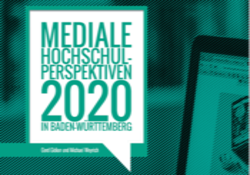
|
Numerous internet-based learning applications and environments have emerged in recent years and are finding their way into academic education. Against this background, the study "Mediale Hochschulperspektiven 2020 in Baden-Württemberg" was conducted. It makes a contribution to the adequate design of media-based university teaching in Baden-Württemberg. Relevant topics of media-based teaching and learning in the field of academic education were examined as case studies at the University of Stuttgart and the Karlsruhe Institute of Technology. In addition to presenting the current situation, the aim of the study was also to describe likely future developments as a possible basis for strategic developments at university and state level. |
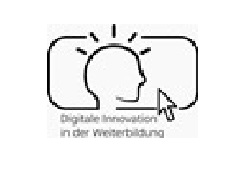
(01-08/2015)
|
Training series on the sustainable introduction of digital media in continuing education There are many ways to shape lifelong learning with digital media. The training series "Digital Innovation in Continuing Education" supported specialist staff and teachers at educational institutions in Baden-Württemberg in using digital innovation to their advantage. Workshops dealt with the topics of video production and use, the use of social media and the creation of e-books in further and adult education. The program was carried out by the MFG Innovation Agency for Media and Creative Industries and the Center for Media Learning and was part of the Alliance for Lifelong Learning. It was the follow-up project to the coaching program Bildungsmanagement 2.0, which was successfully completed in November 2013. |
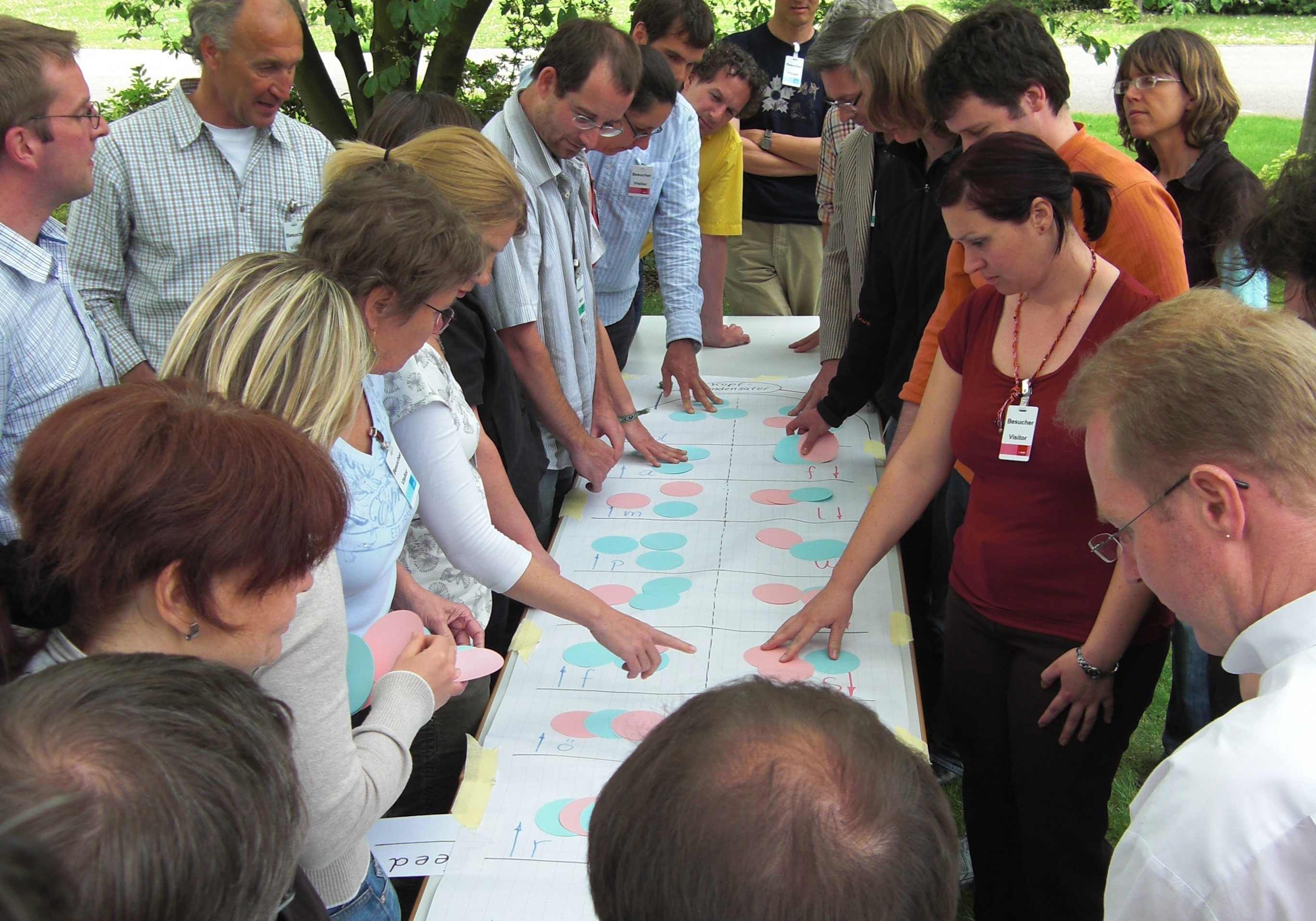
(2007 - 2012)
|
After running for six years, the teacher training program NwT - Science and Technology for teachers at general secondary schools was completed at the end of 2012. On behalf of the Baden-Württemberg Ministry of Culture, Youth and Sport, the Center for Media Learning (at that time still known as the Distance Learning Center) worked with various partners to carry out this internet-based training to prepare teachers for the requirements of the newly established NwT profile subject. A total of almost 500 teachers took part in this training course.
To the detailed follow-up report and further information on the NwT teacher training course. |


